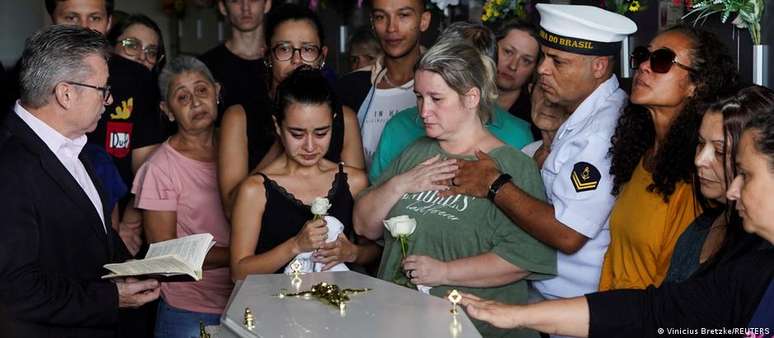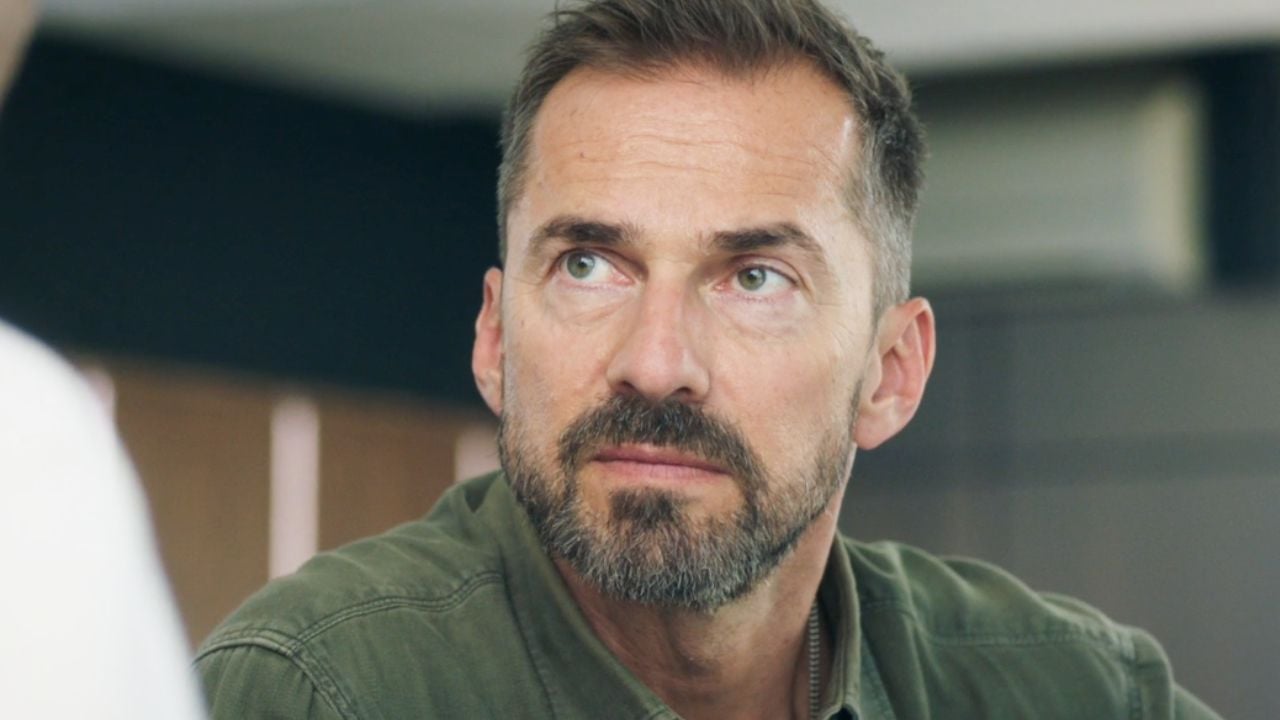Violent attacks on schools are not isolated cases: we live in a Brazil that distils hatred – and it has a long ballast, it didn’t start in 2018. We need multiple actions to dismantle this feeling of identity. In recent weeks we have witnessed unbearable levels of violence.
Brazil was shocked by the murder of teacher Elisabete Tenreiro, 71, by one of her students in the city of São Paulo, and by the attack on the Cantinho do Bom Pastor day care center, which left four children dead and others wounded at Blumenau.
And it wasn’t for nothing: we must be absolutely appalled and devastated, because we are facing an epidemic of hate.
Despair increases when we see that such violence has taken place in one of the most important places in the construction of democratic societies: the school. The space that, in theory, should be safe for teachers, students and employees, has become the privileged target of extremist actions that feed on hate, developing an unhealthy and criminal competition that is enrolling many young Brazilians as martyrs of a sect that is difficult to destroy be added.
The authorities are already taking action and since April 3 we have seen a healthy change in the attitude of Brazilian journalism on how to deal with this phenomenon of growing hatred, based on attentive listening to specialists. In the world that celebrates the “15 minutes of fame” – or the current 20 seconds of TikTok – the epidemic of hatred is built on the net, through the recognition of these sick criminals, treated as martyrs in these abject sects. This is why it is essential not to feed this perfidious prospect of success.
Hatred is nothing new in Brazil
But, as we know, these cases are not isolated. In recent years, the escalation of hatred has assumed frightening proportions, driving countless Brazilian public policies, such as the tragedy of the Yanomami, or the contempt of many political authorities in relation to the 700,000 dead in the coronavirus pandemic. Let us not forget the massacres that continue to dictate the lives of so many people (especially black) who live in the suburbs of Brazil, the growth of feminicide, the murders promoted by trivial fights or political disagreements – such as the recent death of the cameraman Thiago Leonel Fernandes da Motta , in Rio de Janeiro.
However, it is important to say – especially in the middle of Good Friday: hate as a way of doing politics and acting socially is not new in Brazil. Even though we have recently lived through the era of the “office of hate”, it must be recognized that this office has found resonance in a part of Brazilian society, feeding and being nourished by the wild beast. This seems very strange in a country that has been forged on the idea of being a peaceful, harmonious and multiracial nation – a sort of melting pot of the world. And perhaps part of the problem lies precisely in this: the way we understand Brazil and recognize ourselves as Brazilians prevents us (deliberately) from a more precise perception of what Brazil is.
We live in a Brazil that distills hate. And this hatred has a long ballast.
It may seem a bit apocalyptic to say it, but the historical production is there, not to lie.
Identity crisis
If we partially recover the antecedents of the last two hate cases, we will see that the assumption of white supremacy is present in both. Some might call me an identity. Even if I think this term reduces the debate, I won’t run away from this nickname, because I believe that what we are experiencing is also (or above all) an identity crisis. There is a kind of tacit silence in this culture of hate, which defends that all non-whites are understood as inferior beings, and that precisely for this reason they are receptacles of hatred and, therefore, eliminated, regardless of their age.
I say and repeat: our culture of hate didn’t start in 2018. There it only started to show its ugliest face. We need multiple and combined actions to dismantle this network and this sense of identity. Because hate creates bonds, builds relationships. Unfortunately, people recognize themselves in hatred and come to defend belonging to their homeland on the basis of that sentiment. And this acknowledgment that accompanies our history is now fed by networks that escape the supervisory bodies, the parents’ eyes, the very idea of civilization.
We already know that democracies die… a dead death and a killed death. We’ve been close to a thread at many times. And what has always saved us has been the broad and critical exercise of citizenship.
It is profoundly symptomatic that the last two incidents of violence and hate took place in schools. This symptom is also a sign, an indication that, more than ever, we need to look more carefully and carefully at these spaces. And here, the subject of the sentence is the first person plural: we, society, need to take care of and give new meaning to our schools. Let’s build school spaces that are effectively places to celebrate diversity, respect, comparison, the search for knowledge, joy, health and life.
—
Master and PhD in Social History at the USP, Ynaê Lopes dos Santos is Professor of History of the Americas at the UFF. She is the author of the books Além da Senzala. Slave Housing Arrangements in Rio de Janeiro (Hucitec 2010), History of Africa and Afro-descendant Brazil (Pallas, 2017), Juliano Moreira: black doctor in the foundation of psychiatry in Brazil (EDUFF, 2020) and Brazilian racism: A history of training from the country (However, 2022), and also responsible for the Instagram profile @nossos_passos_vem_de_longe.
Text reflects the author’s opinion, not necessarily DW’s.
Source: Terra
Rose James is a Gossipify movie and series reviewer known for her in-depth analysis and unique perspective on the latest releases. With a background in film studies, she provides engaging and informative reviews, and keeps readers up to date with industry trends and emerging talents.







